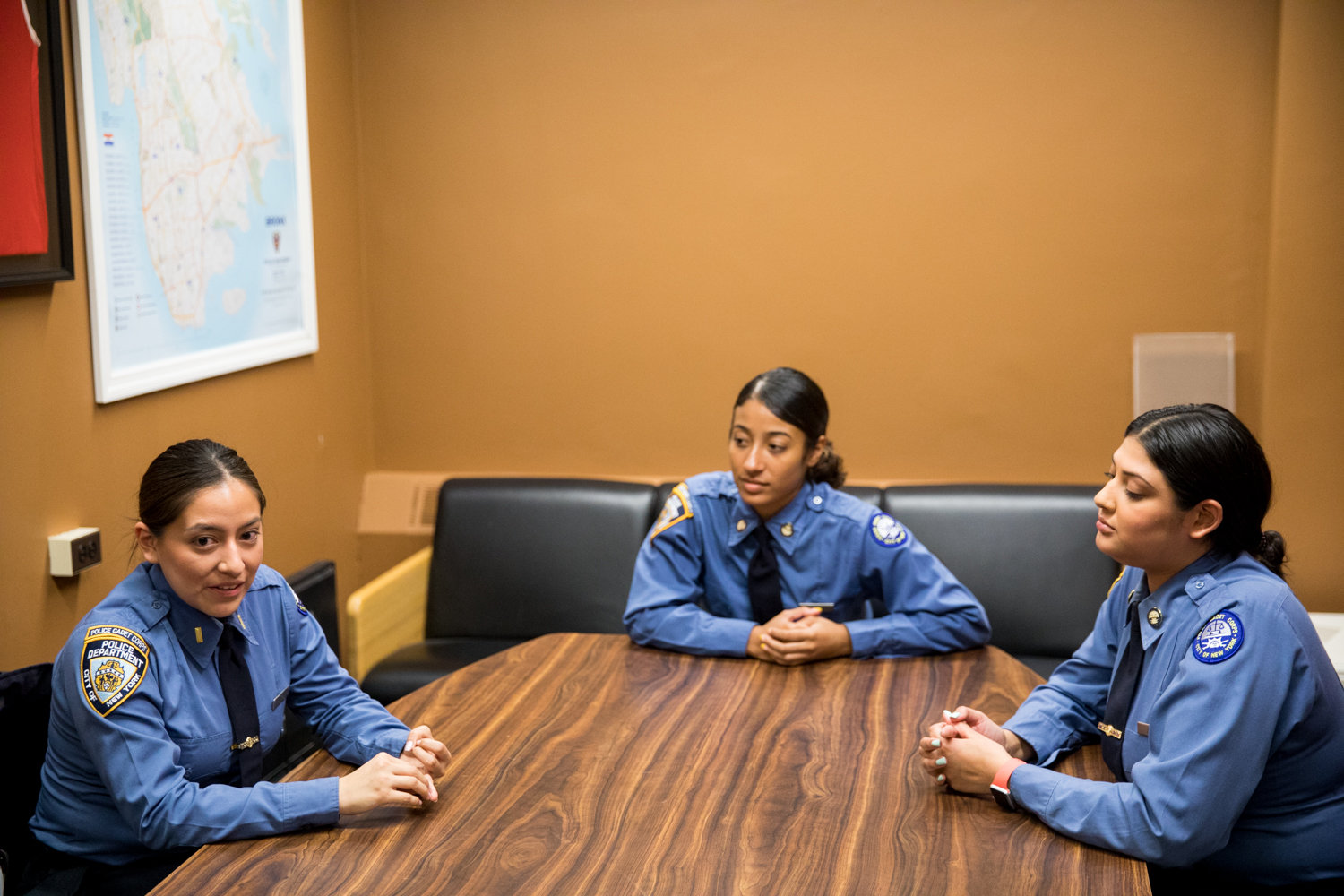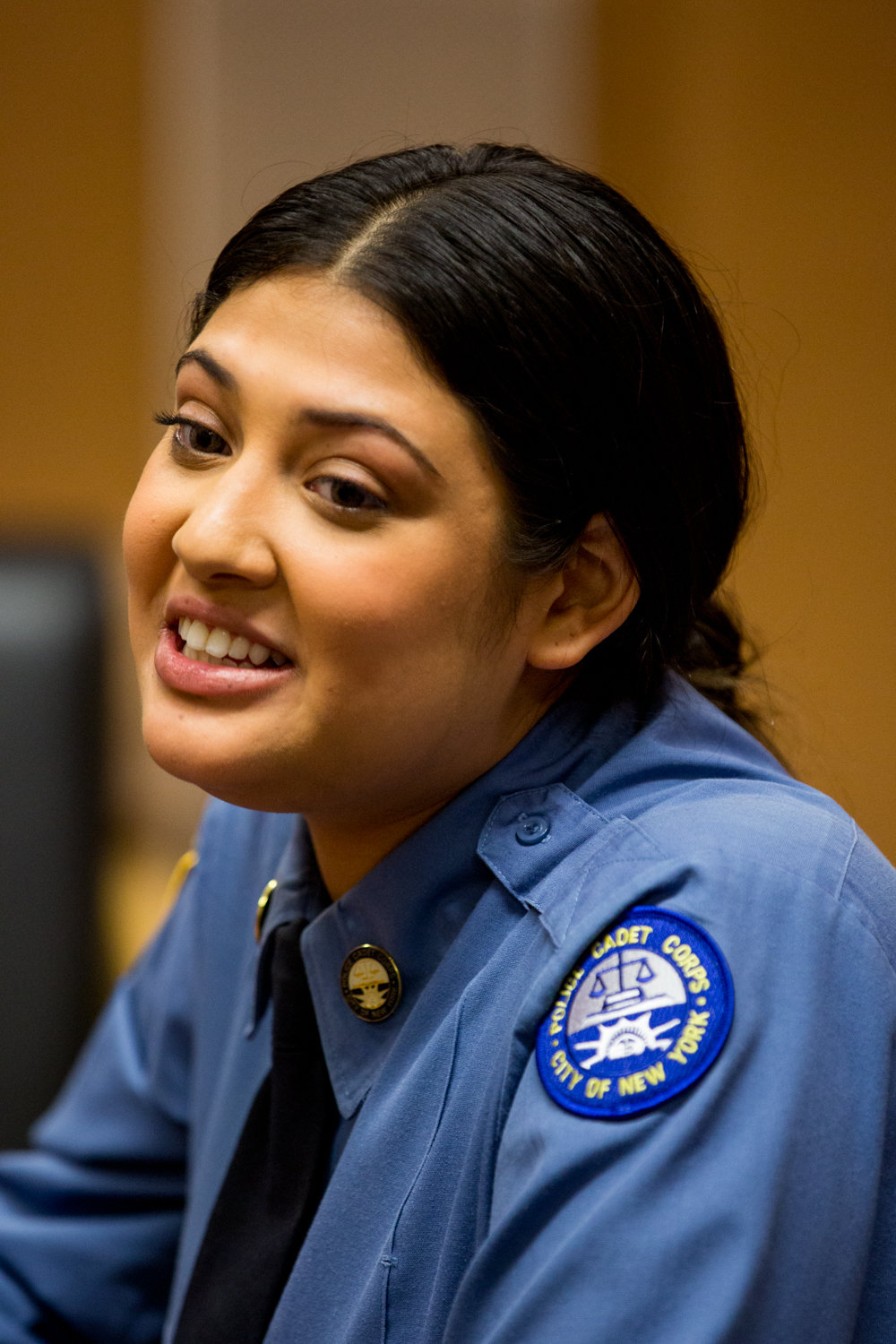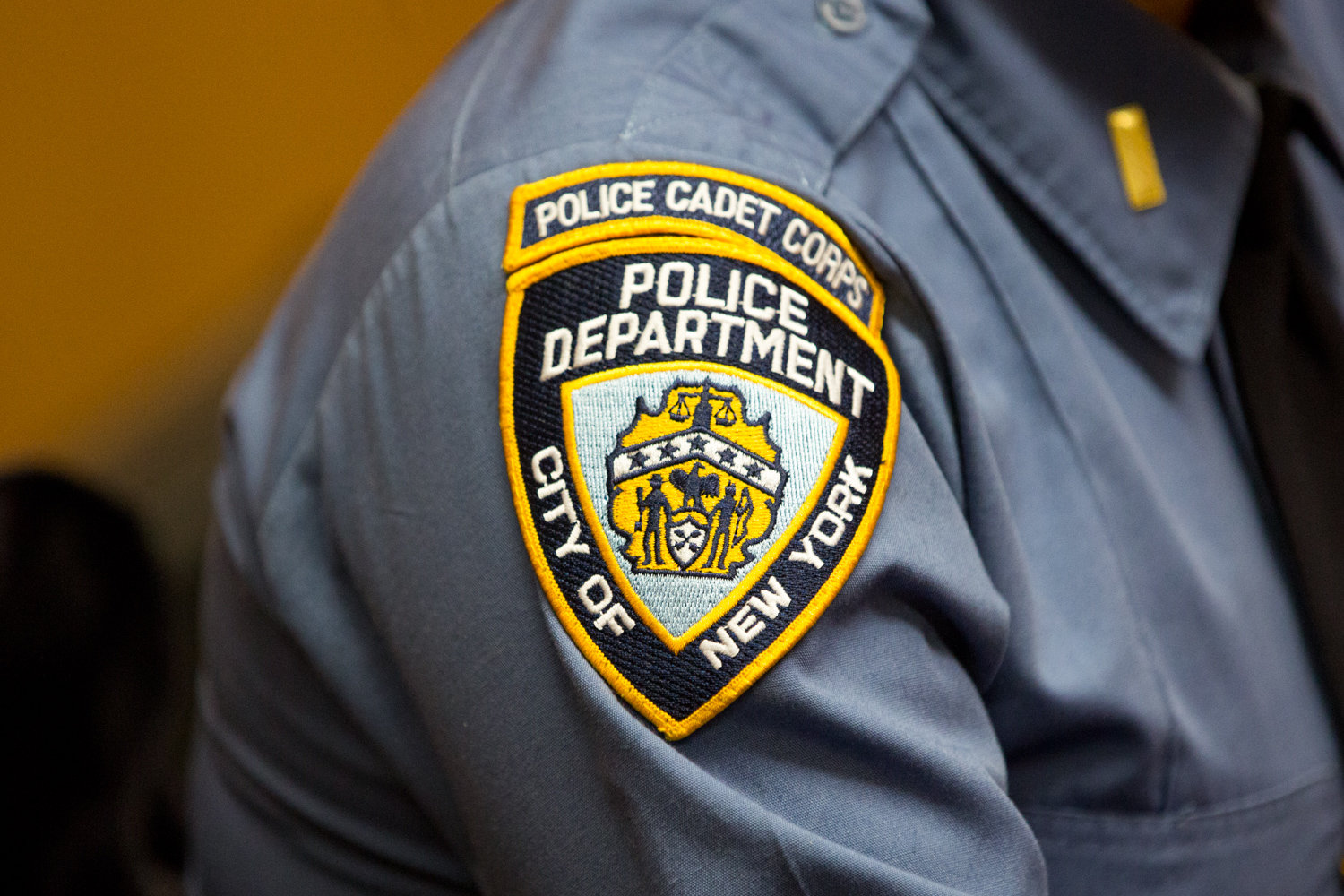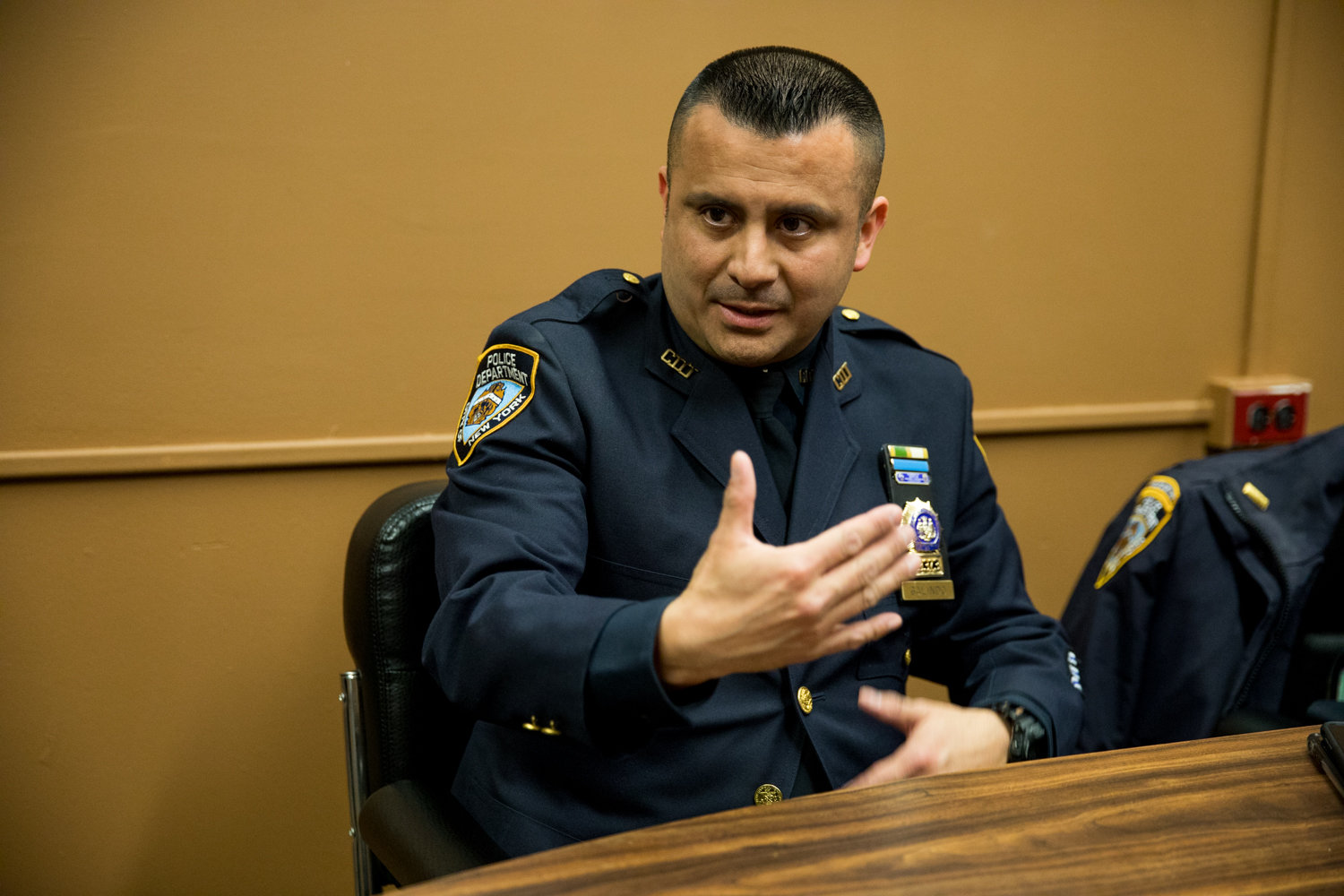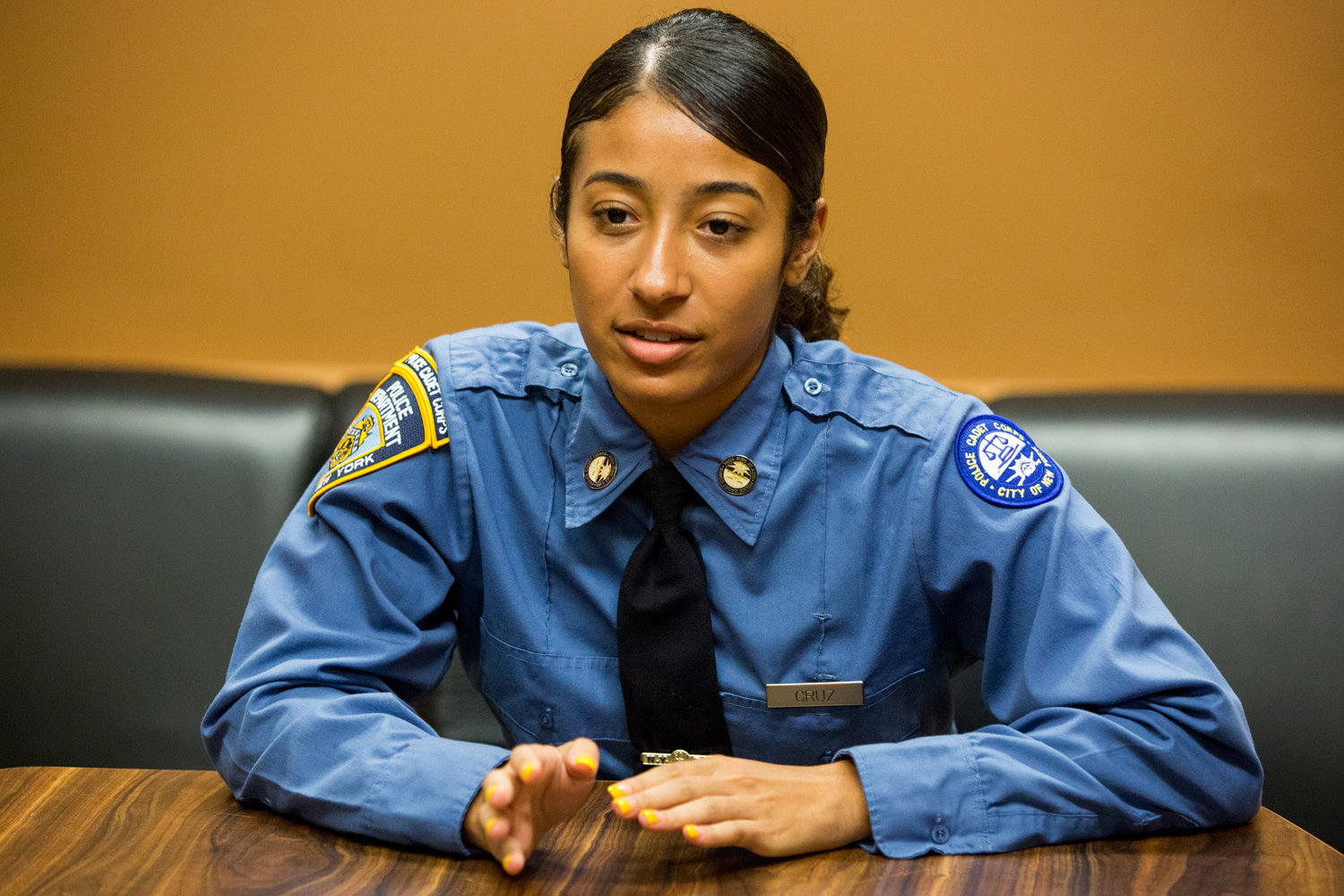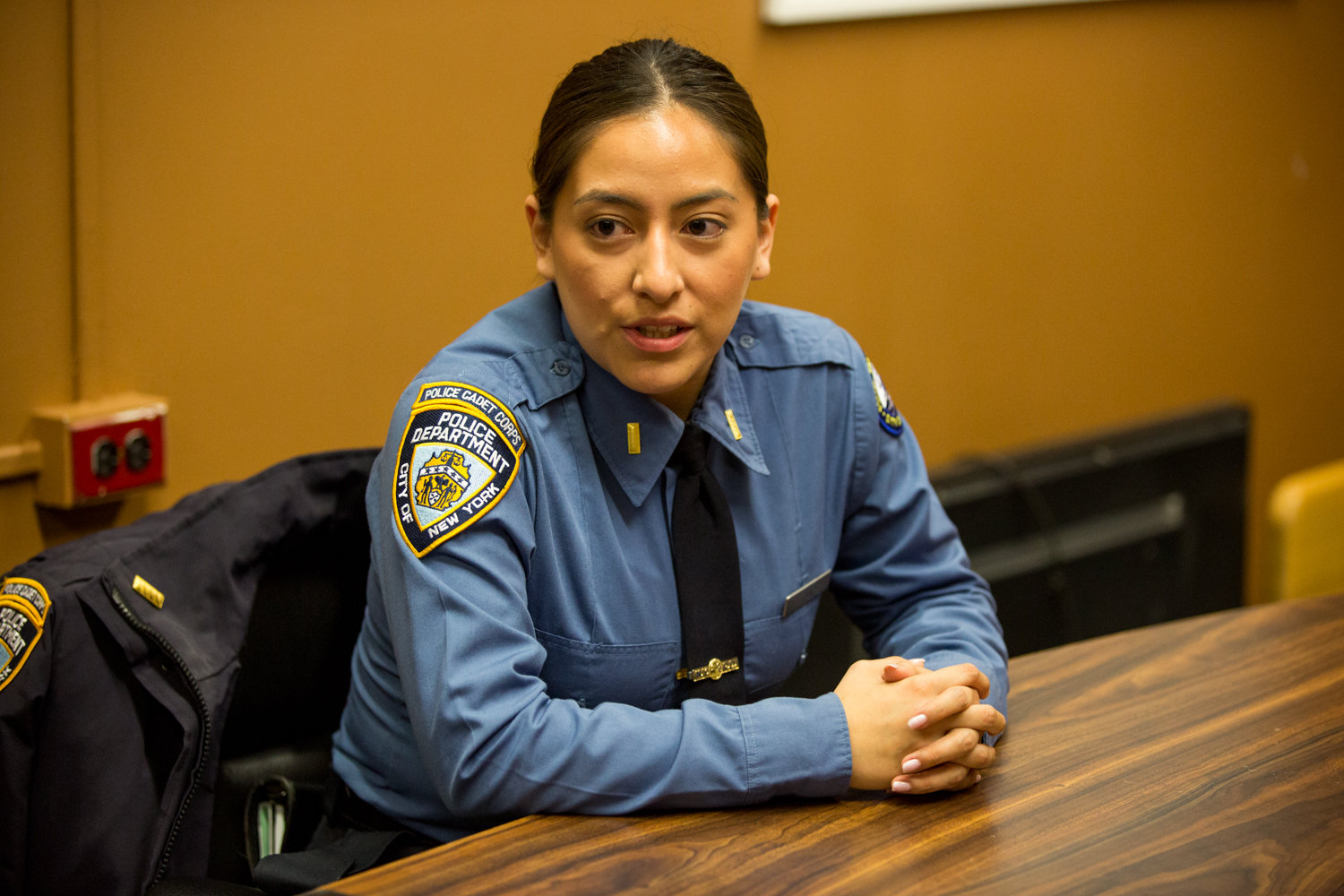NYPD cadets ready for future in uniform
The New York Police Department is perhaps one of the most famous law enforcement agencies in the country, maybe even the world. Their cars race through movies, and Dick Wolf has built an empire on many iterations of “Law & Order,” tracking fictional NYPD officers across hundreds of episodes.
Although more than 55,000 people work in the department, becoming an NYPD officer isn’t easy. Many applicants take an entrance exam, undergo medical and psychological tests, and finish a challenging physical exam in less than five minutes.
There’s another way to get onto the police force, however. Across the city, hundreds of college students sign up every year to join the Police Cadet Corps. If accepted, each one spends two years working part-time at an assigned precinct while classes are in session, and full-time during the summer.
At the 50th Precinct, three cadets suit up and work 21 hours each week among the more than 100 uniformed officers at the station. Caroline Azeez, Lesly Diaz and Emily Cruz spend their days filing police reports, pulling paperwork, and helping keep things running smoothly at the precinct. Diaz’s work takes her outside the precinct at times as well.
Azeez and Cruz both major in criminal justice — Azeez at John Jay College of Criminal Justice and Cruz at Mercy College. They both were interested in becoming police officers when they started college, and the Police Cadet Corps presented a stepping stone for getting there.
Finding new paths to travel
But not everyone who enrolls thought this is where they would end up. Diaz, is actually a marketing major at Baruch College, a line of work that many might not feel is a natural fit for a future police officer. But after talking to family members and on-campus recruiters, Diaz decided to give the cadet corps a try.
Starting out in administrative work, Diaz soon found herself beginning to like the rhythm of days in the station.
“When you start working in the precinct, you start learning a lot, too,” Diaz said. “Even as civilians, you still get that treatment of what to do in a moment. You never know what can happen, and the fact that you can be that person that knows, in a sense. You can guide others.”
The three agreed they were indeed gaining insight — learning how officers navigate large crowds, or trying to calm down people in crisis. It also was their first real look at how the NYPD operates.
“I worked with detectives,” Azeez said. “And everyone sees criminal shows, like ‘CSI,’ stuff like that. And so they get a perception of, ‘Oh, they’re going to find out who robbed me in two seconds.’ No, it takes a lot of hard work. It takes video canvassing. It’s not just a 30-minute episode where it happens so fast.”
Twice each year, cadets take medical exams, psychological tests and a physical test — the same job standards test they’d take when applying to become an officer. Once they’ve passed all three, it’s time for four weeks of paid training at the police academy, said Detective Angel Galindo, who runs the cadet training program. That includes hours of class time followed by physical education — running, jumping jacks, classic workouts run by intense instructors.
“It was like a culture shock, because I didn’t want to be a police officer,” Diaz said. “It never came through my mind or anything like that … walking into the police academy, being told you have to put on this uniform, and learning how to stand properly, being in a certain formation.”
Learning to have the disciple level her instructors expected was the biggest learning curve, Diaz said. And she wasn’t alone.
“You have to always be ready, be on your toes most of the time,” Cruz said. “The gym aspect, running a lot, working out, I think is beneficial. It makes you want to be better, and stronger.”
The goal, Galindo said, is to produce better-educated officers.
“I’m a former cadet myself,” he said. “It’s a good foundation for dealing with the community. Just because you have a degree doesn’t mean you treat people with respect.”
Different generations of learning
Being part of the cadet program made Galindo more understanding and more professional. Becoming part of the community, and making sure the people he protects can trust him is an integral part of the job.
“The biggest weapon we have is our words,” Galindo said. “We’re dealing with so many people that want answers, that want help. I tell them, speak to them, understand them. Be in their shoes.”
Even when out of uniform and going about their daily lives in the city, the training has changed the way each of the cadets interact with their environments and the people around them.
“If a person is acting a certain way here, or at any precinct, with the leadership and discipline we’ve learned already, I’ll look at it a certain way,” Cruz said.
“Maybe before I would have looked at them like they’re crazy. But now I know maybe they’re going through something, that they want to open up to us.”
They’ve learned how to calm down people who come into the precinct rattled and upset, Azeez said. Even when they can’t quite handle something, someone is always nearby who can.
“But usually, most of the time, if you’re respectful, and you’re communicating, they do calm down,” she said. “And they realize you can help them.”
Azeez wasn’t quite sure where she wanted to end up within the department. Definitely in a higher rank, she said, but she wasn’t sure where. The detectives walking the halls have inspired Cruz, who now has her eye on that particular path.
Thanks to a little prompting by Detective Annette Shelton, another former cadet, Diaz said she’d like to make captain someday.
“I’d like to work again in the training bureau,” she said. “Right now we’re in 2020, but by the time I get up there, there’s definitely going to be different ways, different tactics, maybe different things on our gun belts, we don’t know. We don’t know. I definitely want to be part of that change.”
Each of the cadets plans to enroll in the academy after graduating, where getting hired as an officer will be considered a promotion from where they are now. Outside applicants sometimes have to wait years to be placed, but these three could be working in the NYPD in just a few years.
One of the things they’ve learned? The most realistic cop show is probably “Law & Order: SVU.”
“Definitely not ‘Brooklyn Nine-Nine,’” Diaz joked.

